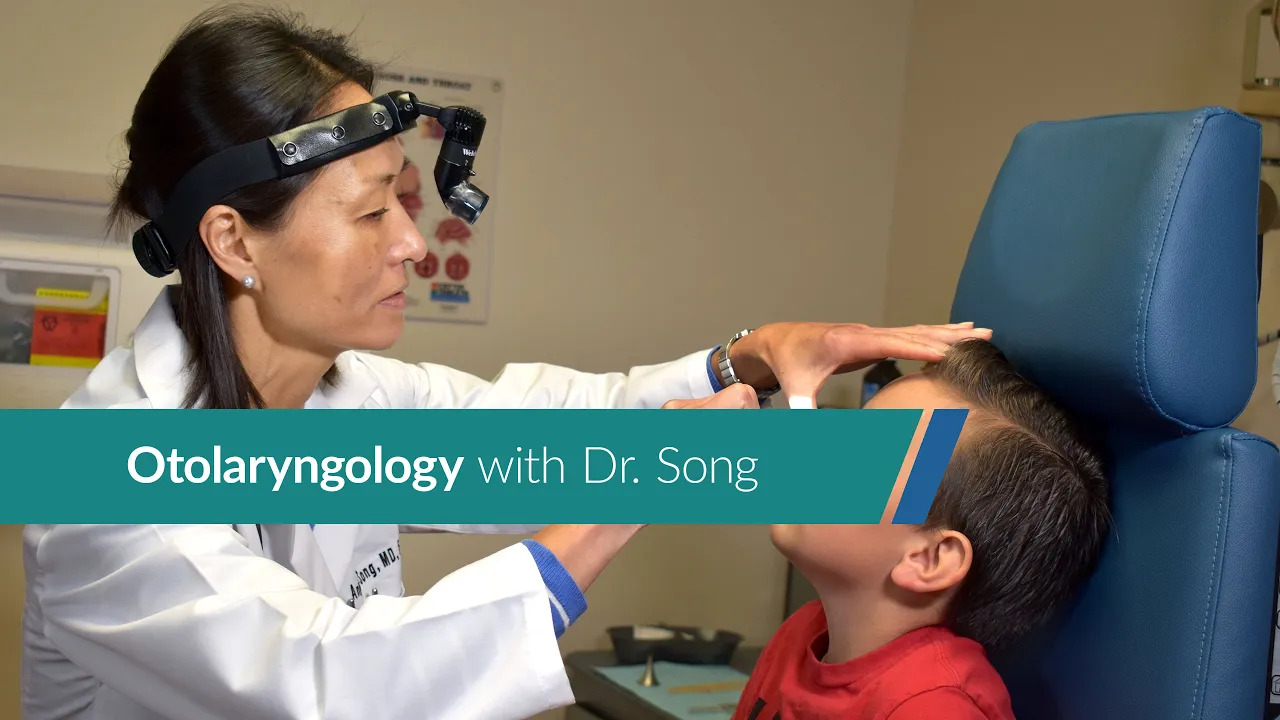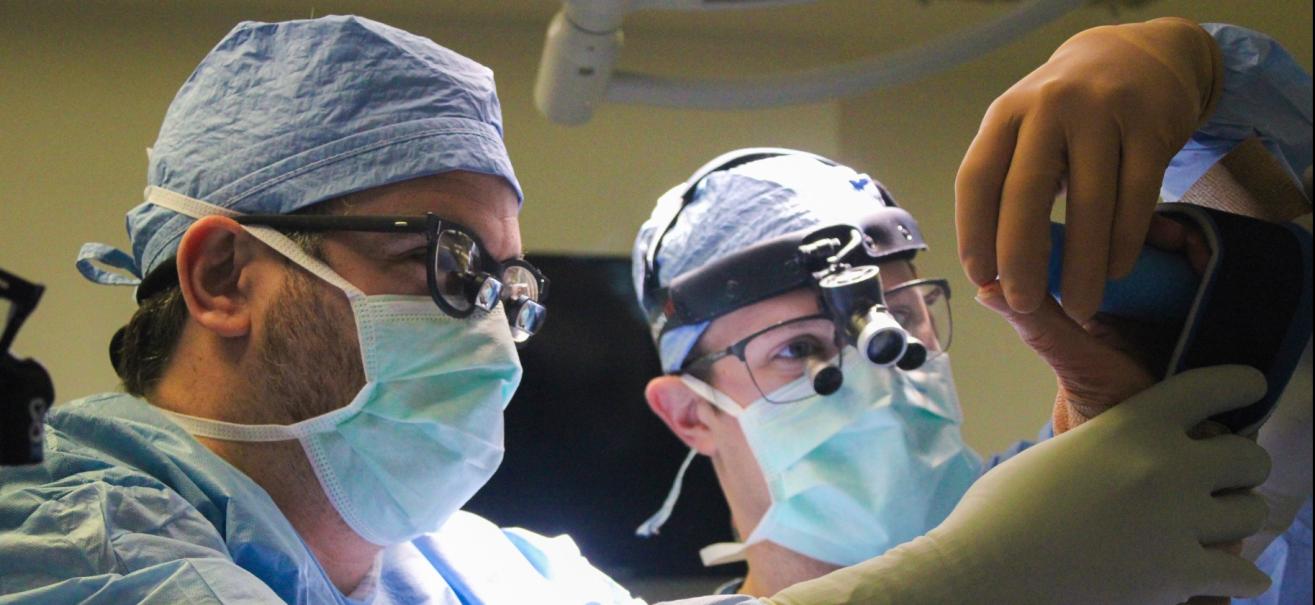How Scheduling a Visit with an Otolaryngologist Might Improve Your Well-being
Wiki Article
Checking out the Area of Otolaryngology: What to Expect When You Get In Touch With an ENT
Otolaryngology, typically referred to as ENT, includes the medical diagnosis and therapy of throat, nose, and ear disorders. Voice. For those experiencing relevant concerns, seeking advice from an ENT expert can provide clarity and alleviation. Recognizing what to anticipate during such appointments is important for reliable communication and care. This summary will certainly lay out vital elements of the ENT experience, including usual reasons for check outs and the processes involved in medical diagnosis and treatmentUnderstanding Otolaryngology: A Summary
Otolaryngology, frequently described as ENT (Throat, ear, and nose) medication, is a specialized branch of medication that focuses on the medical diagnosis and treatment of problems impacting these essential areas of the body. This field encompasses a vast array of conditions, consisting of those pertaining to hearing, balance, respiratory system function, and speech. Otolaryngologists are educated to take care of both surgical and medical therapies, utilizing innovative methods and technologies. Their know-how extends past conventional conditions, resolving concerns such as allergies, sinus infections, and hearing loss. Additionally, they play a critical function in the administration of head and neck cancers cells, offering detailed treatment tailored to specific patient requirements. On the whole, otolaryngology remains necessary for keeping health and lifestyle in damaged people.Common Reasons to See an ENT Expert
Lots of people look for the competence of an ENT professional for a selection of factors, reflecting the diverse nature of conditions that affect the ear, nose, and throat. Typical problems consist of persistent sinusitis, which typically leads to consistent nasal congestion and facial pain. Allergies and their associated symptoms, such as sneezing and itching, also motivate brows through to these professionals. Hearing loss, whether progressive or abrupt, is another significant factor for consultation. Additionally, people may seek evaluation for throat problems, including persistent hoarseness or ingesting problems. Sleep apnea, characterized by interrupted breathing during sleep, is regularly dealt with by ENT specialists. Each of these problems highlights the value of specialized care in taking care of complicated ENT-related health concerns.Planning for Your ENT Visit
When preparing for an ENT consultation, it is important to collect appropriate details and think about any kind of certain concerns. Individuals should assemble a thorough clinical history, including previous ear, nose, or throat problems, surgeries, and present medications. Recording symptoms-- such as intensity, regularity, and period-- can supply beneficial insights for the ENT expert. In addition, individuals ought to prepare a checklist of concerns they wish to ask, guaranteeing that all issues are dealt with throughout the visit. Bringing along any pertinent medical documents or examination outcomes can better assist the ENT in understanding the client's condition. Clients must verify their visit details, including place, day, and time, to decrease any kind of final complication. Appropriate prep work can enhance the effectiveness of the consultation and lead to far better results.
What to Expect Throughout the Appointment
As the appointment starts, the patient can expect to take part in a comprehensive discussion with the ENT expert about their signs and symptoms and clinical background. The expert will ask about the duration, frequency, and extent of signs such as hearing loss, nasal congestion, or aching throat. Furthermore, the client's previous medical problems, medications, and any appropriate household history will certainly be examined, helping the specialist in creating a total understanding of the client's health. The ENT might additionally ask concerning way of living factors, such as exposure to irritants or allergens. This open discussion develops a structure for the assessment, guaranteeing that the person's worries are dealt with and establishing the phase for any essential analyses or suggestions for therapy.Analysis Examinations and Procedures in Otolaryngology
A range of diagnostic examinations and treatments are important in otolaryngology to precisely review and detect problems influencing the nose, ear, and throat. Typical examinations consist of audiometry, which determines hearing function, and tympanometry, examining center ear pressure. Nasal endoscopy allows visualization of the nasal passages and sinuses, while laryngoscopy analyzes the throat and vocal cables. Imaging strategies, such as CT scans and MRIs, give thorough views of head and neck structures. Allergy screening might also be conducted to recognize triggers for sinus or respiratory system concerns. These analysis tools enable ENT specialists to develop a detailed understanding of patients' problems, making sure customized and reliable monitoring strategies. Appropriate diagnosis is vital for successful therapy results in otolaryngology.Treatment Options Supplied by ENT Specialists
ENT specialists provide a selection of treatment alternatives tailored to deal with certain problems affecting the ear, throat, and nose. These treatments vary from traditional approaches, such as medication and way of life alterations, to even more intrusive treatments. Allergies may be managed with antihistamines or immunotherapy, while chronic sinusitis might call for nasal corticosteroids or sinus surgical treatment. For hearing loss, ENT specialists frequently suggest listening devices or medical interventions like cochlear implants. In situations of throat conditions, options can include speech treatment or operations to eliminate obstructions. Additionally, they might give advice for taking care of rest apnea, including the use of CPAP devices or medical treatments. In general, the goal is to improve people' quality of life through individualized treatment and reliable treatment strategies.When to Look For Follow-Up Care With an ENT
Identifying when to seek follow-up treatment with an ENT specialist is essential for handling ongoing signs and symptoms or difficulties associated with throat, nose, and ear problems (Voice). Individuals ought to take into consideration arranging a follow-up consultation if signs continue despite preliminary treatment, such as persistent ear discomfort, nasal congestion, or throat pain. Modifications in hearing, equilibrium issues, or unusual nasal discharge might also necessitate further analysis. Additionally, if an individual experiences negative effects from prescribed medicines or has actually undertaken a surgical procedure, follow-up treatment is very important to monitor recovery and deal with any type of problems. Prompt assessments can ensure reliable monitoring of problems, protect against potential complications, and offer satisfaction pertaining to one's wellness. Looking for follow-up treatment advertises aggressive health management in otolaryngologyOften Asked Questions
What Credentials Should I Look for in an ENT Specialist?
When looking for an ENT professional, one should search for board qualification, appropriate experience, and solid individual testimonials. Additionally, effective communication abilities and a caring technique can significantly enhance the total therapy experience.Exactly how Do I Pick the Right ENT for My Demands?
Choosing the appropriate ENT expert involves evaluating their credentials, experience, and individual reviews. It is vital to ponder their communication design and strategy to therapy, guaranteeing they align with the individual's particular health demands and preferences.Exist Any Threats Associated With ENT Procedures?
The threats connected Otolaryngology with ENT treatments may consist of infection, blood loss, anesthetic difficulties, and potential damages to surrounding frameworks. Clients need to go over these risks with their doctor to recognize private worries and guarantee notified choices.How Can I Handle Anxiousness Before My ENT Visit?
To handle anxiousness before a visit, people can practice deep breathing workouts, visualize favorable outcomes, prepare concerns ahead of time, and look for support from good friends or family members, fostering a sense of peace of mind and peace.
What Should I Do if I Experience Adverse Effects From Treatment?
If adverse effects from treatment happen, the person ought to without delay report them to their medical care service provider. Otolaryngology. Adjustments to therapy or extra treatments may be needed to assure safety and effectiveness in managing their condition. As the appointment starts, the patient can expect to engage in a thorough discussion with the ENT expert concerning their symptoms and medical history. These diagnostic tools allow ENT experts to establish a comprehensive understanding of people' conditions, ensuring customized and efficient administration plans. ENT experts provide a range of treatment options tailored to resolve details problems impacting the throat, ear, and nose. When seeking an ENT professional, one must look for board qualification, appropriate experience, and strong person testimonials. Selecting the ideal ENT expert involves evaluating their credentials, experience, and individual evaluationsReport this wiki page